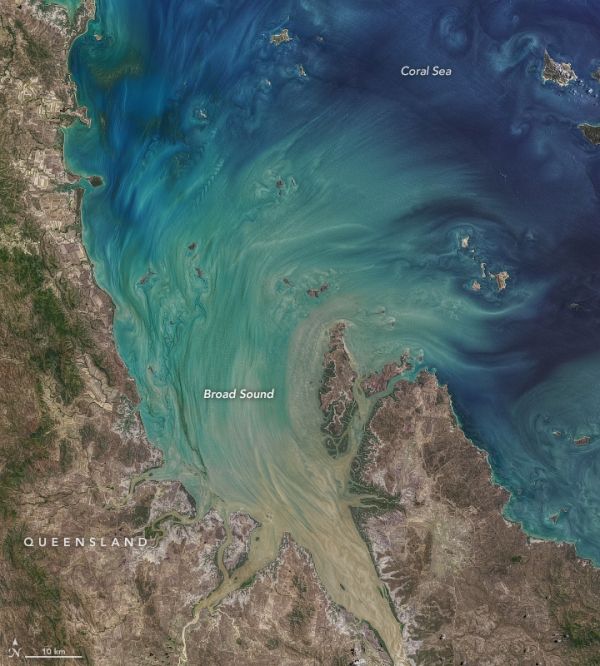Across most of Earth’s coasts, tides typically vary no more than two meters from high to low. At Broad Sound, though, daily high tide can stand as much as ten meters above the low—the largest tidal swings on the eastern shore of Australia.
Explorer Matthew Flinders first documented the unusual bay tides in the early 1800s. At new and full Moon, he noted the tide was “not less than thirty, and perhaps reache[d] thirty-five feet” and occurred hours later than expected. Other researchers in the 20th century also observed the bay’s daily tides are six times higher and occurred three hours later than anywhere else on the eastern shore. Peculiar local geography plays a key role in the phenomenon.
Broad Sound is a large funnel-shaped bay near the southern end of the Great Barrier Reef. It is 50 kilometers (30 miles) long and stretches to about 20 kilometers (12 miles) wide at its greatest extent. The bay contains 48 islands, collectively part of Broad Sound Islands National Park.
Continue reading at NASA Earth Observatory
Image via NASA Earth Observatory


